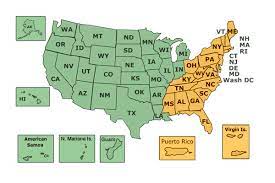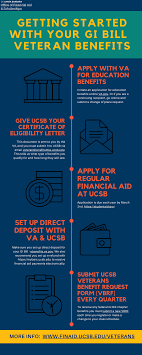VA Dependents Educational Assistance: Unlocking Opportunities for Families
The Department of Veterans Affairs (VA) Dependents Educational Assistance Program is a valuable resource that aims to support the educational pursuits of eligible dependents of veterans. This program provides financial assistance to dependents, enabling them to achieve their educational goals and open doors to a brighter future.
The VA Dependents Educational Assistance Program, also known as DEA, offers educational benefits to spouses, children, and in some cases, even surviving spouses of veterans who have become disabled or lost their lives in the line of duty. This program recognizes the sacrifices made by military families and strives to provide them with opportunities for personal growth and success.
One of the key benefits of the DEA program is its provision for funding towards tuition fees, books, supplies, and other educational expenses. This financial support can significantly alleviate the burden on dependents who aspire to pursue higher education or vocational training programs. By covering these costs, the DEA program makes education more accessible and attainable for those who may otherwise face financial barriers.
Eligibility for DEA benefits depends on various factors such as the veteran’s service-connected disability rating or cause of death. Spouses generally have ten years from the date they become eligible to utilize these benefits, while children can typically access them between ages 18 and 26. Surviving spouses may be eligible until they remarry or reach a certain age threshold.
In addition to financial assistance, the DEA program provides counseling services that guide dependents in making informed decisions about their educational path. These services help individuals explore different academic options and navigate through the complexities of choosing a suitable program that aligns with their interests and career aspirations.
It is essential for eligible dependents to understand that applying for DEA benefits requires careful attention to detail. The application process involves submitting necessary documentation such as birth certificates, marriage certificates (if applicable), transcripts from previous education institutions attended, as well as any relevant military paperwork. Therefore, it is crucial to gather all the required information and seek guidance from VA representatives or educational institutions to ensure a smooth and successful application.
The DEA program not only empowers dependents with the means to pursue education but also equips them with the skills and knowledge necessary to thrive in their chosen fields. By investing in their education, the VA recognizes that dependents can contribute significantly to society while honoring their family’s legacy of service.
If you are an eligible dependent seeking educational opportunities, consider exploring the VA Dependents Educational Assistance Program. Take advantage of this valuable resource that can help shape your future and provide you with the tools needed for personal and professional success.
In conclusion, the VA Dependents Educational Assistance Program plays a vital role in supporting the educational aspirations of veterans’ dependents. By providing financial assistance, counseling services, and guidance throughout the application process, this program unlocks opportunities for families, enabling them to pursue higher education or vocational training programs. The DEA program stands as a testament to our nation’s commitment to honoring military families and ensuring they have access to quality education.
Frequently Asked Questions About VA Dependents Educational Assistance
- How long do VA education benefits last for dependents?
- Do dependents of veterans get benefits?
- What does Chapter 35 VA benefits pay for?
- What is VA dependents educational assistance?
How long do VA education benefits last for dependents?
The duration of VA education benefits for dependents varies depending on the specific program and circumstances. In general, the VA Dependents Educational Assistance (DEA) program provides benefits for up to 36 months of full-time education or training.
For spouses, the typical timeframe to utilize DEA benefits is ten years from the date they become eligible. This eligibility is usually triggered by the veteran’s service-connected disability rating or cause of death. However, it’s important to note that if a spouse remarries before reaching this ten-year limit, their eligibility for DEA benefits will generally end.
For children, DEA benefits are typically available between the ages of 18 and 26. The precise age range may vary slightly depending on individual circumstances. It’s important for children to be aware of these time limitations and plan their educational pursuits accordingly.
Surviving spouses who are eligible for DEA benefits generally retain their eligibility until they remarry or reach a certain age threshold, which can vary depending on specific criteria set by the VA.
It is crucial for dependents to stay informed about their specific eligibility requirements and any changes in regulations that may affect the duration of their benefits. The VA website, educational institutions’ veterans’ offices, and VA representatives are valuable resources that can provide up-to-date information and guidance regarding the duration of VA education benefits for dependents.
Do dependents of veterans get benefits?
Yes, dependents of veterans can be eligible for various benefits provided by the Department of Veterans Affairs (VA). These benefits are designed to support and assist the families of veterans in different aspects of their lives. Some of the key benefits available to dependents include:
- Education Benefits: Dependents may be eligible for educational assistance through programs such as the VA Dependents Educational Assistance (DEA) program or the Fry Scholarship. These programs provide financial support for tuition, books, supplies, and other educational expenses.
- Healthcare Benefits: In certain cases, dependents may be eligible for healthcare coverage through programs like CHAMPVA (Civilian Health and Medical Program of the Department of Veterans Affairs). This program provides medical coverage to spouses and children of disabled or deceased veterans.
- Survivor Benefits: Surviving spouses and children may be eligible for survivor benefits, including Dependency and Indemnity Compensation (DIC) or death pension benefits. These benefits provide financial assistance to help support the family after the veteran’s death.
- Home Loans: The VA offers home loan programs that extend eligibility to surviving spouses of veterans who died in service or as a result of a service-connected disability. This benefit allows them to obtain favorable terms when purchasing or refinancing a home.
- Counseling Services: Dependents can access counseling services through VA centers or Vet Centers, which provide support for mental health issues, readjustment difficulties, and other challenges faced by military families.
It is important to note that eligibility criteria vary depending on the specific benefit program, so it is advisable to consult with VA representatives or visit their official website to determine eligibility requirements and application processes.
Overall, these benefits aim to recognize and honor the sacrifices made by veterans’ families while providing them with necessary support in various areas of their lives.
What does Chapter 35 VA benefits pay for?
Chapter 35 VA benefits, also known as the Survivors’ and Dependents’ Educational Assistance (DEA) program, provides financial assistance to eligible dependents of veterans. These benefits can be used to cover various educational expenses, including:
- Tuition and Fees: Chapter 35 benefits can help pay for tuition and fees at approved educational institutions, whether it be a college, university, vocational school, or other eligible programs.
- Books and Supplies: The program also covers the cost of required books, supplies, and equipment necessary for the enrolled courses.
- Monthly Stipend: Eligible dependents may receive a monthly stipend to assist with living expenses while pursuing their education. The amount of the stipend is determined by factors such as the type of program being pursued (full-time or part-time), the number of credit hours taken, and the length of enrollment.
- Vocational Rehabilitation and Training: Chapter 35 benefits can be used for vocational rehabilitation and training programs that aim to provide skills necessary for entry into the job market.
- Certification Examinations: Some certification examinations required for professional licensing or employment purposes may also be covered under Chapter 35 benefits.
It is important to note that these benefits are generally available for a maximum period of up to 45 months for full-time training or an equivalent part-time duration. However, certain circumstances may allow extensions beyond this period.
To access these benefits, eligible dependents must apply through the Department of Veterans Affairs (VA) by submitting necessary documentation and completing the application process. It is advisable to consult with VA representatives or visit their official website for detailed information on eligibility criteria and how to apply.
The Chapter 35 VA benefits aim to support dependents in achieving their educational goals and enhancing their career prospects. By covering tuition fees, providing a monthly stipend, assisting with books and supplies, and supporting vocational rehabilitation programs, these benefits play a crucial role in easing the financial burden and empowering dependents to pursue their chosen educational path.
What is VA dependents educational assistance?
VA Dependents Educational Assistance, also known as DEA, is a program offered by the Department of Veterans Affairs (VA) to provide educational benefits to eligible dependents of veterans. This program aims to support the educational pursuits of spouses, children, and in some cases, surviving spouses of veterans who have become disabled or lost their lives in the line of duty.
The DEA program offers financial assistance to dependents, helping them cover the costs associated with pursuing higher education or vocational training programs. This includes funding for tuition fees, books, supplies, and other educational expenses. By providing this financial support, the program aims to make education more accessible and affordable for dependents who may otherwise face financial barriers.
Eligibility for DEA benefits depends on various factors such as the veteran’s service-connected disability rating or cause of death. Spouses generally have ten years from the date they become eligible to utilize these benefits, while children can typically access them between ages 18 and 26. Surviving spouses may be eligible until they remarry or reach a certain age threshold.
In addition to financial assistance, the DEA program also offers counseling services to help dependents make informed decisions about their educational path. These services provide guidance on exploring academic options and navigating through the complexities of choosing a suitable program that aligns with their interests and career aspirations.
It is important for eligible dependents to carefully follow the application process for DEA benefits. This involves submitting necessary documentation such as birth certificates, marriage certificates (if applicable), transcripts from previous education institutions attended, as well as any relevant military paperwork. It is recommended that applicants gather all required information and seek guidance from VA representatives or educational institutions to ensure a smooth and successful application.
Overall, VA Dependents Educational Assistance is designed to empower dependents by providing them with financial support and counseling services that enable them to pursue their educational goals. By investing in their education, this program recognizes the potential contributions that dependents can make to society while honoring their family’s legacy of service.



